The backbone of small business success lies in effective bookkeeping practices. From tracking expenses to managing cash flow, proper bookkeeping ensures financial health and compliance with regulations. Small business owners often find themselves overwhelmed by the complexities of bookkeeping, but fear not – this guide is here to cover everything you need to know.
Whether you’re just starting out or looking to refine your current bookkeeping processes, understanding the basics of bookkeeping is crucial. By implementing best practices and utilizing the right tools, you can streamline your financial operations and set your small business up for long-term success. So, let’s explore Small Business Bookkeeping 101 and equip you with the knowledge and skills to effectively manage your finances.
Key Takeaways:
- Importance of Bookkeeping: Bookkeeping is vital for small businesses to track expenses, income, and overall financial health.
- Organized Record Keeping: Maintaining organized records helps in preparing accurate financial statements, tracking cash flow, and making informed business decisions.
- Use of Accounting Software: Utilizing accounting software can streamline bookkeeping processes, reduce errors, and provide real-time insights into the financial status of the business.
Understanding Bookkeeping Fundamentals
The Basics of Bookkeeping
Some small businesses underestimate the importance of bookkeeping in managing their finances efficiently. Bookkeeping is the process of recording, organizing, and maintaining financial transactions for a business. This includes keeping track of income, expenses, assets, and liabilities in an organized manner to provide a clear picture of the financial health of the business.
Differentiating between Bookkeeping and Accounting
Basics of small business bookkeeping involve understanding the distinction between bookkeeping and accounting. While bookkeeping focuses on recording financial transactions, accounting involves interpreting, analyzing, and summarizing those transactions to provide insights for decision-making. Bookkeeping is more about the day-to-day recording of transactions, while accounting looks at the bigger financial picture of the business.
For instance, bookkeeping involves tasks like recording invoices, tracking expenses, and reconciling bank statements. On the other hand, accounting involves preparing financial statements, analyzing financial data, and providing financial reports to stakeholders.
Setting Up Your Bookkeeping System
Little did you know that setting up a solid bookkeeping system is necessary for the success of your small business. By organizing your financial records effectively, you can make informed decisions, keep track of your expenses, and ensure compliance with tax regulations.
Choosing the Right Bookkeeping System: Manual vs. Software
Bookkeeping can be done manually using spreadsheets or ledgers, or with the help of specialized accounting software. While manual bookkeeping may suit small businesses with simple financial transactions, software solutions like QuickBooks or Xero offer automation, real-time reporting, and scalability. Consider the size of your business, your budget, and your accounting knowledge when choosing the right system for your needs.
Configuring Your Chart of Accounts
Your chart of accounts is the backbone of your bookkeeping system and provides a framework for organizing your financial transactions. It consists of categories like assets, liabilities, income, and expenses. Customize your chart of accounts to align with your business activities and reporting needs. This will help you accurately track where your money is coming from and where it’s going.
Understanding the flow of money in and out of your business is crucial for making informed decisions and planning for the future. Take the time to configure your chart of accounts correctly from the beginning to avoid confusion and errors down the line.
Implementing a Filing System for Records Management
To maintain organized financial records, implementing a filing system is key. Keep physical copies of important documents like receipts, invoices, and bank statements in labeled folders or binders. For digital records, use a consistent naming convention and folder structure to easily locate specific files when needed. Regularly backup your electronic files to prevent data loss and ensure compliance with record-keeping regulations.
Organizing your records systematically will not only save you time during tax season but also provide valuable insights into your business’s financial health. Establishing a filing system early on will set you up for success as your business grows.
Daily Bookkeeping Tasks

Many small businesses underestimate the importance of daily bookkeeping tasks in maintaining accurate financial records. Daily bookkeeping helps businesses track their financial health, manage cash flow effectively, and make informed decisions for future growth.
Recording Transactions
An vital daily bookkeeping task is recording all financial transactions promptly and accurately. This includes documenting sales, purchases, expenses, and any other financial activities. By keeping detailed records of transactions on a daily basis, businesses can ensure that their financial reports are up-to-date and reflect the true financial position of the business.
Managing Accounts Receivable
With a focus on managing accounts receivable, businesses can ensure timely collection of payments from customers. This involves sending out invoices promptly, following up on overdue payments, and maintaining a structured system for tracking outstanding invoices. By staying on top of accounts receivable, businesses can improve cash flow and minimize the risk of bad debts.
Recording and organizing accounts receivable data accurately is crucial for maintaining healthy cash flow and financial stability. Businesses can utilize accounting software to streamline the invoicing and payment tracking process, making it easier to manage accounts receivable efficiently.
Managing Accounts Payable
Recording and managing accounts payable is another critical daily bookkeeping task for small businesses. This involves tracking and organizing all outgoing payments to suppliers, vendors, and other creditors. By staying on top of accounts payable, businesses can ensure that they meet their financial obligations on time and maintain good relationships with their suppliers.
Daily reconciliation of accounts payable can help businesses avoid late payment fees and take advantage of any early payment discounts offered by suppliers. By maintaining accurate records of accounts payable, businesses can also track their expenses effectively and make informed decisions about their cash flow and financial commitments.
Tracking Expenses and Revenue
Now, one of the most critical aspects of small business bookkeeping is accurately tracking expenses and revenue. This is important for understanding the financial health of your business and making informed decisions.
Categorizing Expenses Correctly
Tracking and categorizing expenses correctly is key to maintaining organized financial records. It allows you to easily analyze where your money is being spent and identify areas where you can potentially cut costs. Make sure to create clear categories for expenses such as utilities, rent, supplies, and marketing. This will help you stay on top of your finances and make tax time a breeze.
Managing Petty Cash
Any small business owner knows that petty cash can quickly become a headache if not properly managed. It’s important to have strict guidelines in place for petty cash expenditures and ensure that every penny is accounted for. Consider appointing a designated individual responsible for managing and reconciling petty cash on a regular basis to avoid any discrepancies or potential misuse.
Cash receipts and detailed records should be kept for every petty cash transaction. This will not only help in tracking where the money is going but also provide transparency and accountability within your organization.
Recording Sales and Revenue
Cash sales and revenue are the lifeblood of any business. It’s crucial to accurately record and track all sales transactions to have a clear picture of your business’s financial performance. Implement a system that captures every sale, whether it’s through cash, credit card, or other payment methods, and ensure that all revenue is properly documented.
Tracking sales and revenue on a consistent basis will not only give you insight into your business’s financial health but also help you identify trends and opportunities for growth. This information is invaluable when making strategic decisions to increase profitability and sustain long-term success.
Monitoring Cash Flow
It’s important to monitor your cash flow regularly to ensure that your business has enough funds to cover expenses and operate smoothly. Cash flow is the movement of money in and out of your business, including income, expenses, and investments. By effectively managing your cash flow, you can avoid cash shortages and make informed decisions to support your business’s financial stability.
Correctly forecasting your cash flow can also help you anticipate potential challenges and plan for growth opportunities. By monitoring your cash flow on a regular basis, you can make adjustments to your budget, pricing, and expenses to improve your business’s overall financial health.
With proper tracking and management of your expenses, revenue, and cash flow, you can set your small business up for success and ensure long-term financial stability and growth.
Payroll and Employment Compliance
Despite the size of your small business, managing payroll and staying compliant with employment laws is crucial. Properly handling payroll ensures your employees are paid accurately and on time, while compliance with labor laws minimizes the risk of legal issues and penalties.
Setting Up a Payroll System
Payroll is the process of calculating and distributing employee compensation. To set up a payroll system, you will need to gather employee information, such as tax forms and bank account details, choose a payroll schedule (e.g., weekly, bi-weekly, or monthly), and select a payroll service or software to streamline the process. It’s imperative to ensure accuracy in calculating wages, deductions, and taxes to avoid issues with employees and regulatory authorities.
Understanding Employment Taxes and Deductions
Deductions play a significant role in an employee’s net pay. These can include federal and state income taxes, Social Security, Medicare, health insurance premiums, retirement contributions, and any other agreed-upon deductions. Understanding the various deductions and their impact on both employees and the business is crucial for accurate payroll management.
Compliance with employment tax laws and deductions is critical for small businesses to avoid costly fines and legal implications. Stay updated on tax rates, thresholds, and employee benefits to ensure your payroll system is in line with the latest regulations.
Keeping Compliant with Labor Laws
Ensuring compliance with labor laws encompasses various aspects, including minimum wage requirements, overtime pay, employee classification (e.g., exempt vs. non-exempt), and record-keeping. Small businesses must be aware of both federal and state labor laws that apply to their operations to avoid violations and potential lawsuits.
Staying compliant with labor laws requires ongoing monitoring and updating of policies and procedures to reflect any changes in regulations. It’s imperative to prioritize accurate record-keeping, proper employee classification, and fair treatment to maintain a compliant and ethical work environment.
Periodic Bookkeeping Duties
After diligently recording all financial transactions, small business owners must perform several periodic bookkeeping duties to ensure the accuracy and reliability of their financial records. One crucial task is the reconciliation of accounts.
Reconciliation of Accounts
Bookkeeping involves matching the balances in your accounting records with the corresponding balances on your bank statements. This process helps identify discrepancies, such as missing transactions or errors, which can then be rectified to ensure the accuracy of your financial data.
Preparing Financial Statements
An vital part of small business bookkeeping is preparing financial statements, including the income statement, balance sheet, and cash flow statement. These documents provide a comprehensive overview of your business’s financial performance and position, helping you make informed decisions and track your progress over time.
Duties related to preparing financial statements include organizing financial data, calculating key ratios and metrics, and presenting the information in a clear and understandable manner. This allows business owners, stakeholders, and potential investors to assess the health and profitability of the company.
Budgeting and Financial Planning
Any successful small business must engage in budgeting and financial planning to set goals, allocate resources effectively, and monitor performance. Bookkeeping plays a vital role in this process by providing accurate financial data that can be used to create realistic budgets and forecasts.
Budgeting and financial planning duties include analyzing past financial performance, identifying trends, and projecting future revenue and expenses. By creating detailed budgets and monitoring variances, business owners can make adjustments to ensure financial stability and growth.
Inventory Management
Plus, small business owners need to effectively manage their inventory to control costs and maximize profitability. Bookkeeping tasks related to inventory management include tracking inventory levels, calculating the cost of goods sold, and conducting regular inventory audits to prevent discrepancies and losses.
This ensures that businesses have the right amount of stock on hand to meet customer demand without tying up excessive capital in excess inventory. Proper inventory management practices can improve cash flow, reduce carrying costs, and enhance overall efficiency in operations.
Advancing Your Bookkeeping Knowledge
Once again, congratulations on taking the initiative to advance your bookkeeping knowledge. Understanding more complex financial concepts can greatly benefit your small business in the long run. Let’s explore how you can utilize financial ratios to assess the health of your business.
Utilizing Financial Ratios for Business Health
Utilizing financial ratios is a crucial aspect of assessing the financial health of your small business. Ratios provide valuable insights into your company’s performance and help you make informed decisions. Common ratios such as profitability ratios, liquidity ratios, and solvency ratios can give you a comprehensive picture of your business’s financial standing.
FAQ
Q: What is small business bookkeeping?
A: Small business bookkeeping is the process of systematically recording, analyzing, and interpreting the financial transactions of a business. It involves keeping track of income, expenses, assets, and liabilities to help business owners make informed decisions and meet legal requirements. In the meantime, check out our Top 5 Tips For Keeping Your Small Business Finances In Order.
Q: Why is small business bookkeeping important?
A: Small business bookkeeping is crucial for several reasons. It provides an accurate picture of the financial health of the business, helps track cash flow, ensures compliance with tax regulations, enables business owners to make informed decisions based on financial data, and simplifies the process of securing loans or investments.
Q: What are the key components of small business bookkeeping?
A: The key components of small business bookkeeping include maintaining accurate records of income and expenses, reconciling bank statements, tracking accounts payable and accounts receivable, organizing financial documents, generating financial reports, and preparing for tax filings. By diligently managing these aspects, business owners can effectively monitor their financial performance and plan for the future.





